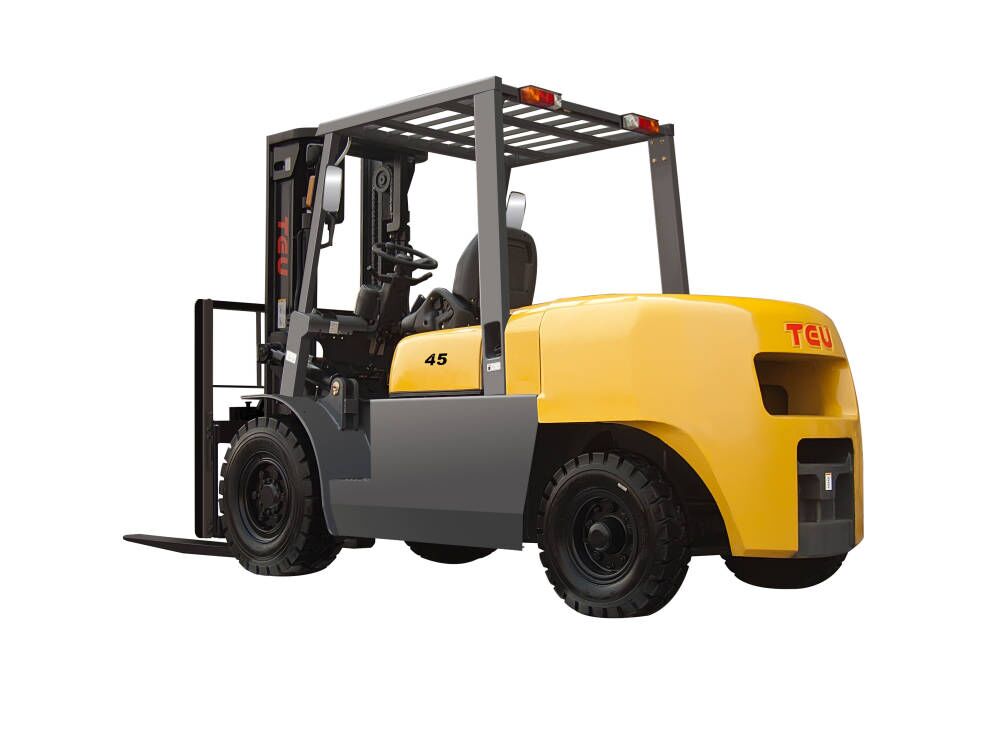Introduction
Diesel forkllifts are powerful and versatile industrial machines used in a variety of material handling applications. They have gained popularity in warehouses, construction sites, and manufacturing facilities due to their robust design, high lifting capacities, and reliability. In this article, we will delve into the world of diesel forklifts, exploring their key features, advantages, disadvantages, and the industries where they excel.

I. What Is a Diesel Forklift?
A diesel forklift is a type of forklift truck that is powered by a diesel engine. It is specifically designed for heavy-duty lifting and material handling tasks. Diesel forklifts come in various sizes and configurations, allowing them to handle a wide range of loads.
II. Key Features of Diesel Forklifts
Diesel Engine: Diesel forklifts are equipped with powerful diesel engines that provide the necessary torque and horsepower for heavy lifting. These engines are known for their durability and longevity.
Lifting Capacity: Diesel forklifts are capable of lifting heavier loads compared to their electric or propane counterparts. They are often used in applications where high capacity is required.
Versatility: Diesel forklifts are versatile and can be used both indoors and outdoors. They are equipped with large, durable tires that can handle rough terrain.
Long Runtime: Diesel forklifts have longer operating hours compared to electric forklifts. They can run for extended periods on a single tank of diesel fuel, making them suitable for applications with continuous operation.
Low Fuel Costs: Diesel fuel is generally less expensive than electricity, which can lead to cost savings in the long run.
III. Advantages of Diesel Forklifts
Power and Performance: Diesel forklifts offer exceptional power and performance, making them ideal for demanding tasks such as loading and unloading shipping containers and handling heavy materials.
Durability: Diesel engines are known for their durability and resilience. They can withstand harsh working conditions and provide a long service life.
Outdoor Use: Diesel forklifts excel in outdoor applications like construction sites, lumberyards, and agriculture, where electric forklifts may not be practical.
Quick Refueling: Refueling a diesel forklift is a quick and straightforward process, ensuring minimal downtime during operation.
Low Operating Costs: While the initial purchase price may be higher than electric forklifts, the lower fuel costs and longer lifespan of diesel forklifts can result in lower overall operating costs.
IV. Disadvantages of Diesel Forklifts
Emissions: Diesel forklifts produce emissions that contribute to air pollution. In environmentally sensitive areas or indoor applications, this can be a significant drawback.
Noise: Diesel engines are generally noisier than electric forklifts, which can be a concern in noise-sensitive environments.
Maintenance: Diesel forklifts require regular maintenance to keep the engine running smoothly, which can add to operational costs.
Higher Initial Cost: The upfront cost of purchasing a diesel forklift can be higher than that of an electric model.
V. Applications and Industries
Warehousing: Diesel forklifts are commonly used in large warehouses where heavy loads need to be moved efficiently.
Construction: Their ability to handle rough terrain makes diesel forklifts indispensable in construction sites for tasks like lifting construction materials and equipment.
Agriculture: Farms and agricultural facilities use diesel forklifts for tasks such as handling hay bales, pallets of produce, and other heavy loads.
Logging: In the forestry industry, diesel forklifts are employed for moving logs and other forestry products.
Ports and Terminals: Diesel forklifts are used for loading and unloading cargo containers at ports and terminals due to their high lifting capacity.
Conclusion
Diesel forklifts are versatile workhorses in the world of material handling. Their ability to handle heavy loads, navigate various terrains, and provide extended operating hours makes them indispensable in several industries. However, the decision to use a diesel forklift should consider environmental concerns, noise restrictions, and the specific requirements of the application. As technology continues to advance, we can expect further improvements in fuel efficiency and emission controls, making diesel forklifts even more attractive options for various material handling needs.





